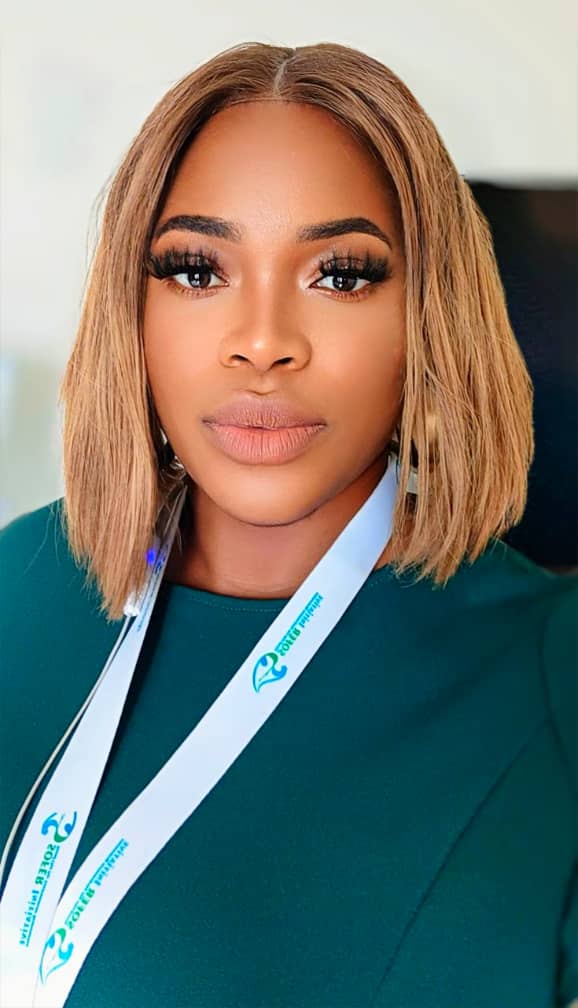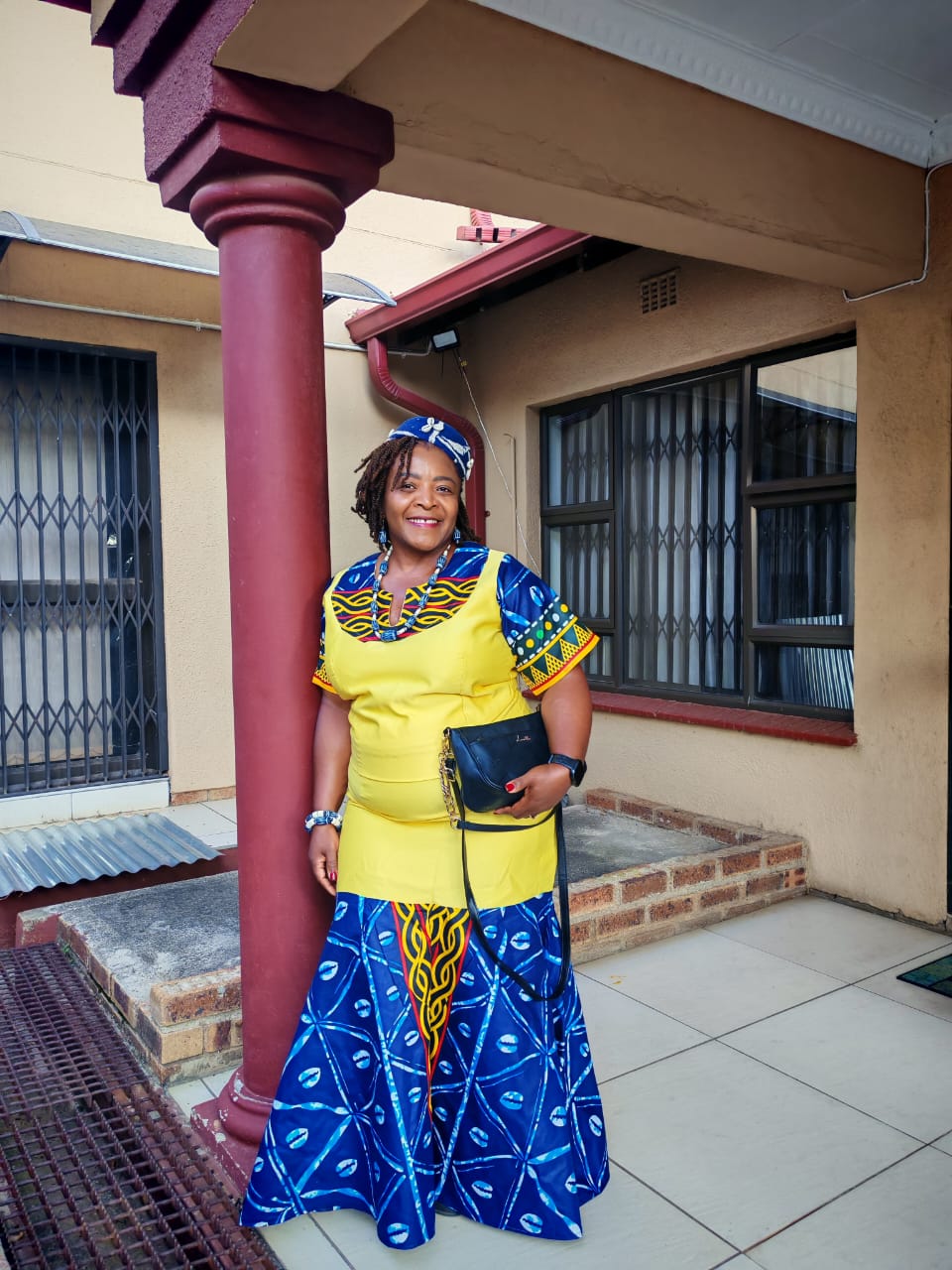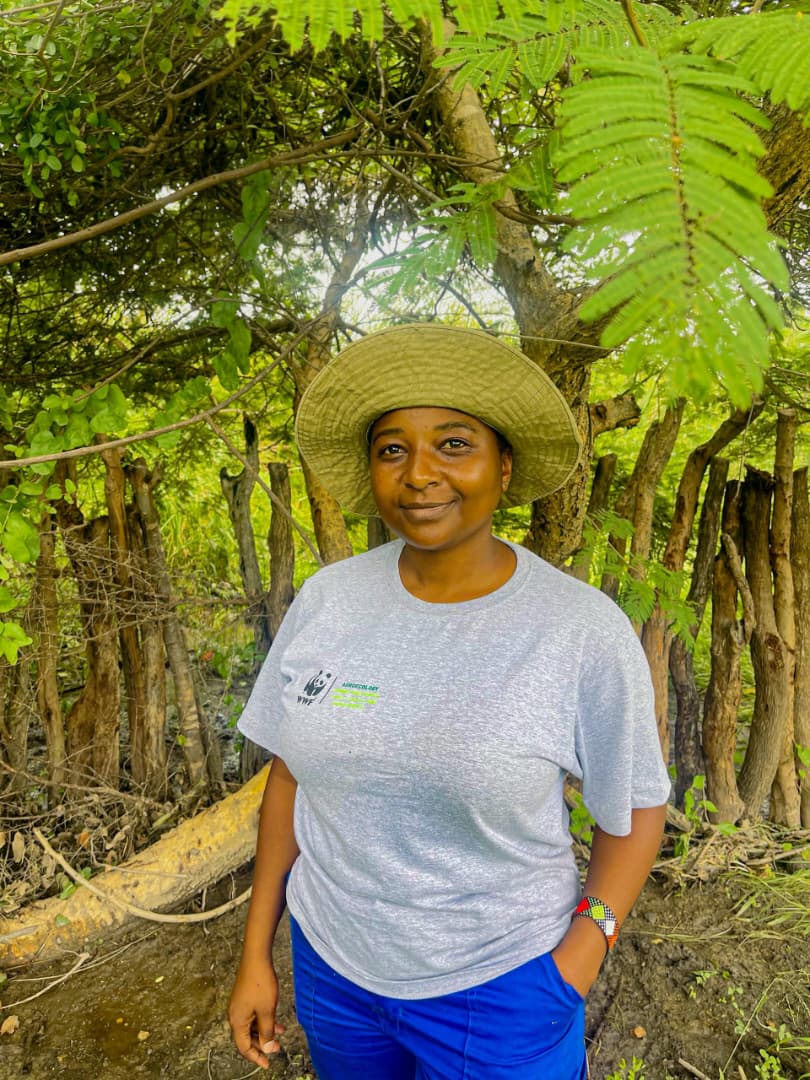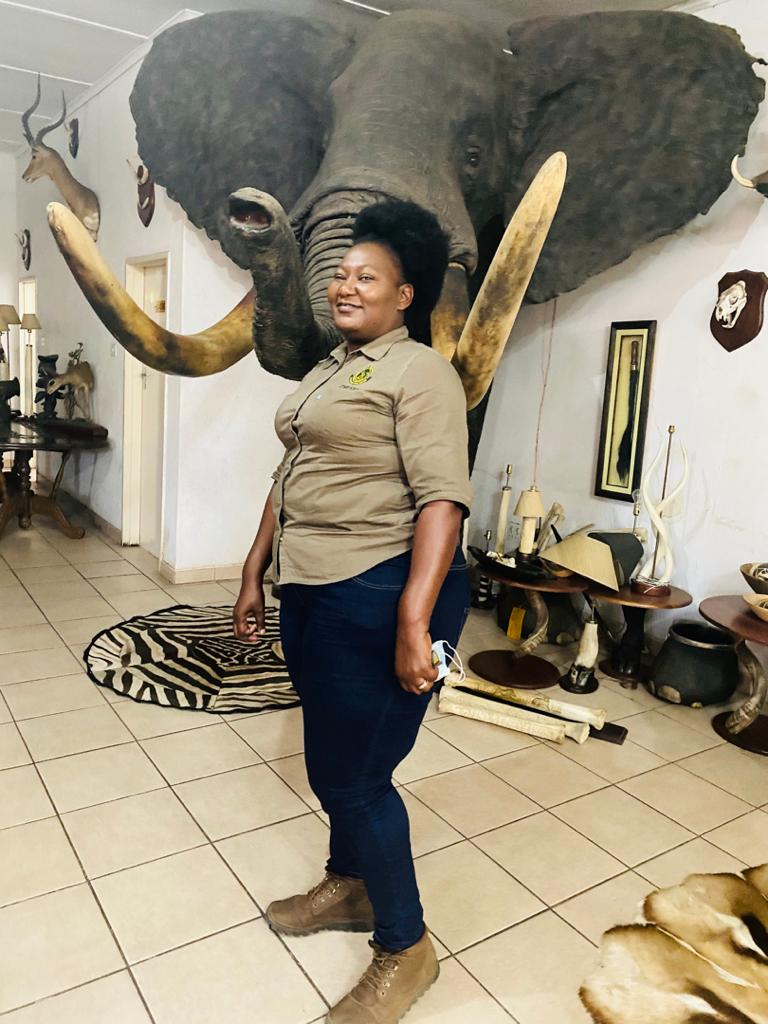This interview is part of a series profiling the stories of the 2024 WE Africa leadership programme fellows, African women in the environmental conservation sector who are showing up with a strong back, soft front, and wild heart.
***
In most traditional African cultures, a child's name is more than just an identifier. It represents the hopes and values of the community. It carries meaning, expectation, purpose.
Take Uyi, for example. It's a rare name given to girls in the Southern Nigerian Efik community. It means Beautiful Mother of Children. While this may not be strictly confined to biological motherhood, it certainly points to a nurturing spirit.
So, does Uyi Effiom see herself in that light?

"Absolutely," she says during our conversation. "I always felt that I was meant to lead something. I just didn't know what it would be."
In this case, it would appear, the name and the named were in perfect sync.
But for Uyi, the expectations tied to her name haven't always worked in her favour. "I've always taken on that mother-hen role," Uyi reflects. "I'm that person who takes the lead." She pauses thoughtfully before adding, "The problem with this is, I don't ask for help. I always feel like I can do it on my own. This can become overwhelming."
Carrying the weight of the world is heavy for anyone, and learning to let go of the pressure has been part of Uyi's journey.
The concept of personal well-being was first introduced to Uyi during her one-year journey with the WE Africa leadership program. It was here that she learned that if she wanted to keep caring for others, she had to first care for herself.
But old habits die hard—especially for someone whose "role" in life came early. In Uyi's case, one might say a little too early.
***
Her dad died when she was just seven years old, and life for Uyi as she had known it changed drastically. Her mum had to live in the city to make ends meet. Uyi and her two younger siblings were shipped off to the village to live with their grandparents.
"Village life was fun," Uyi says. "But it wasn't always easy. My grandmother had very traditional ideas about my role as a firstborn daughter, and that came with a lot of responsibility."
At just seven years old, Uyi was preparing family meals, washing her siblings' clothes, taking them to and from school and so on. In effect, Uyi became her younger siblings' mother.
When she turned nine, Uyi was sent to boarding school. While this offered some relief, the weight of her responsibilities came rushing back every school holiday when she was back at home with her grandparents.
Her uncles and aunties, too, had their own expectations, most of which revolved around the idea of Uyi becoming a good housewife.
"None of it felt right for me", Uyi says. Still, she had little say in the matter, and eventually, they had their way. But not for long.
When Uyi's mother passed away, it felt like the final blow to any personal dreams she might have harboured. She was just twenty-two years old, and the pressure to find a husband became suffocating.
The man she almost married was older. Much older. But he had money, and that seemed to be enough for everyone. Two weeks into staying with him, Uyi fled.
"It was an abusive relationship," she says.
Remarkably, Uyi was quick to forgive—not just the man but also the people who pushed her into that situation. "Dwelling on the past can prevent you from building the future you want," Uyi explains.
And so, from the ashes of that painful chapter, a stronger, freer Uyi was determined to rise—and rise she did.
***
Uyi went on to pursue Law at the University of Calabar, Nigeria. Upon graduating, she pictured a glamorous life as a hotshot lawyer—bright lights and big city vibes. But reality hit fast, and it hit hard. The pay was nothing like she'd imagined, and there were no bright lights to speak of. Disillusionment quickly set in.
Uyi decided that her time could be better spent elsewhere. She had always had an innate love for nature, so volunteering at an environmental conservation NGO seemed like a viable option. SOFER Initiative took her in.
"We had this project called Project Dunk Your Trash," Uyi recalls, smiling. "We'd make 'basketballs' from waste paper, dunk them into a basket, and celebrate. We'd also dance in the streets, creating awareness about waste. It was so much fun! We called it enviro-tainment."
At the time, Uyi didn't fully grasp the complexities of environmental restoration. "I've always been drawn to energetic spaces, and that's exactly what this was. So I was happy."
Three years into volunteering at the NGO, reality checked in—Uyi needed a stable income. Her siblings' tuition fee wasn't going to pay itself. Uyi got honest with her bosses, and they offered her a paid position.
She loved being involved in the fieldwork aspect of her job because it connected her directly with people. One of her roles was to teach girls and women in coastal communities how to create wealth from waste. They repurposed discarded fishing nets which had been retrieved from the ocean and used them to create fabrics for shoes, bags, clothes, and furniture.

"This project is especially important because the discarded fishing nets trap and kill marine life. If this continues, the people won't have fish to catch. So, the project isn't just about upcycling; it's also about empowering women financially and teaching them to take care of the ocean."
Seeing the testimonials from the beneficiaries of this project changed everything for Uyi. One moment, in particular, stuck with her.
While visiting a coastal community, she noticed a young girl near the ocean. She was carrying a younger child on her back. A sibling perhaps? She was also gathering crops.
This girl couldn't have been more than seven years old. Uyi felt an instant connection with her and approached her. "What are you doing?" she asked. The girl explained that her father's boat had been destroyed in a storm, so he hadn't caught any fish. The family had nothing to eat. The gravity of Uyi's work hit home. The ocean upsurge didn't just damage the boat; it disrupted an entire family's livelihood. Uyi explains, "The father couldn't get fish, the family didn't have food, and now this little girl was out by the open waters, risking her safety to find something—anything—to eat." In that moment, Uyi understood that restoring the marine environment wasn't just fun and games—it was survival.
As Uyi spoke to the girl, memories of her own childhood flooded back. "I saw myself in this child," she says. "When my father died, I was her age. I had younger siblings looking up to me, and every day felt like a struggle—hawking on the streets, trying to make ends meet. I knew exactly what this child was going through."
***
Talking about how climate change disproportionately affects women is abstract. Until you see it firsthand. Uyi was able to connect the dots when she saw men who, overwhelmed by frustration and the inability to provide for their families, took their anger out on their children—their daughters, to be specific. Uyi encountered heartbreaking stories of teenage girls who had been raped and impregnated by frustrated fathers who couldn't catch fish.
"I could see these girls shutting down mentally. Their only hope in life was to find someone that would marry them. That's when I started asking myself: What can I do to change this?" Uyi recalls.
She could see that many of the women she worked with had been beaten down so hard and for so long that they didn't even realise they had the power to change their stories. That would be her entry point. Aside from the formal training sessions, Uyi held one-on-one conversations with these women, where she would offer them encouragement in the hope of opening a door to a new path.
One woman opened up. "She just broke down, and I could sense the weight of everything she'd been carrying," Uyi says.
"I learned that she had been raped by her father multiple times and had become pregnant. She had been telling herself, ‘My own don finish’, meaning ‘It's all over for me’. I mean, this woman would often take her child to the ocean and wish the water would take them."
Hearing this tore Uyi to shreds. She knew what this woman needed more than anything else: hope.
"I reassured her that those were just experiences, not failures, and certainly not the end of her journey," Uyi says.
Uyi was able to connect with this woman on such a deep level because she herself had, many times in the past, felt alone, judged, misunderstood. She, herself, had carried heavy expectations. "If no one ever helps you understand who you are or the possibilities for your life, everything just piles up, and then it becomes impossible to imagine a way out. To break free from all of that, you need to find your voice and say, No, I'm rewriting that script. I'm not following it," she says.
By genuinely seeing this woman, Uyi may not have just saved a life but changed many more. Because today, this very same woman encourages many other women and girls, using her own journey as an example of hope.
***
Uyi Effiom may have once envisioned herself as a high-powered lawyer, striding through courtrooms and making a name for herself in shiny places. Instead, she found herself exactly where she was meant to be— in the environmental sector, using her time, talent, and treasure to change lives.
A true Beautiful Mother of Children, she is crafting a legacy that will make those who named her proud—because even as she lives out her destiny, she doesn't just rise for herself, she lifts others too. Time and time again, Uyi rises. And lifts. Fiercely and lovingly.
***
The following statement was written and shared by Uyi Effiom during her graduation from the WE Africa Leadership Program in December 2024:
What If I Shine?
If I shine, I will light a path for women to see their true potential—strengths they’ve always had but may have forgotten amidst the weight of traditional beliefs and expectations. Through intentional leadership, I will help them break free from narratives that no longer serve their growth and inspire them to embark on courageous journeys of self-discovery and transformation.
If I shine, every woman I sit with will understand that she carries within her the tools to rewrite her story—turning limitations into opportunities and dreams into realities with radical imaginations! This is not just about change; it’s about Awakening.
When I shine, it won’t just be my light—it will be theirs too, glowing brighter with every step they take toward becoming everything they were meant to be.
UYI EFFIOM, WE AFRICA 2024 Fellow





